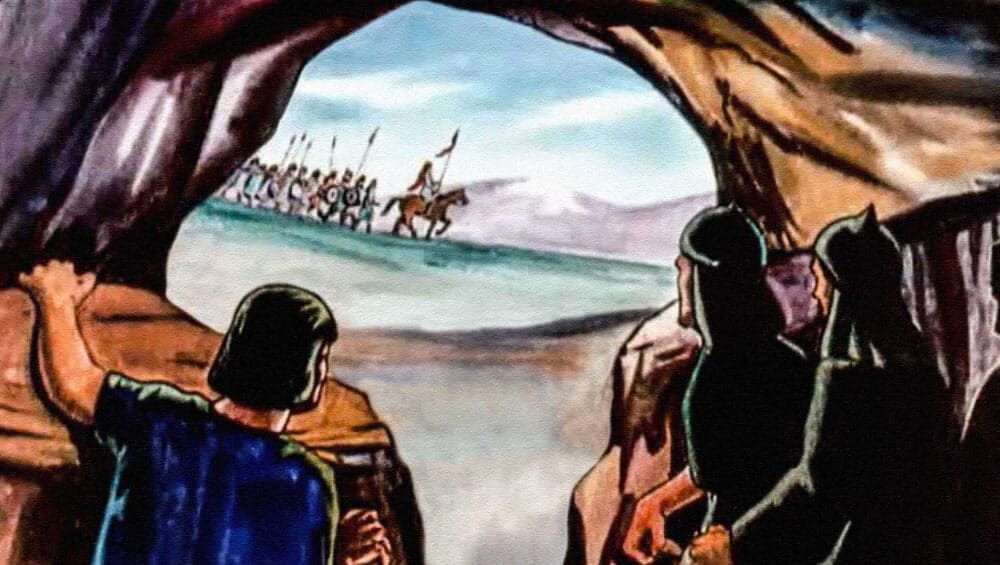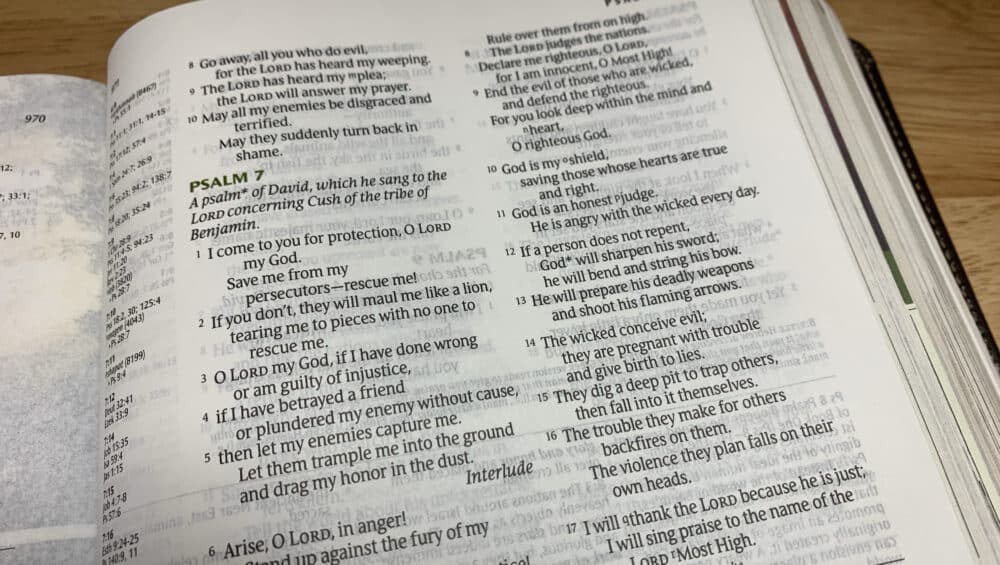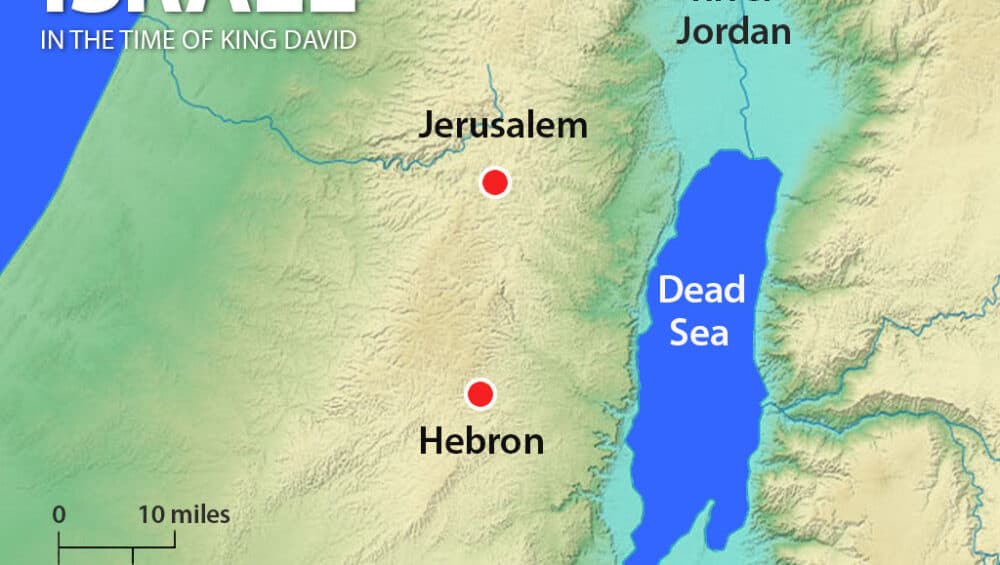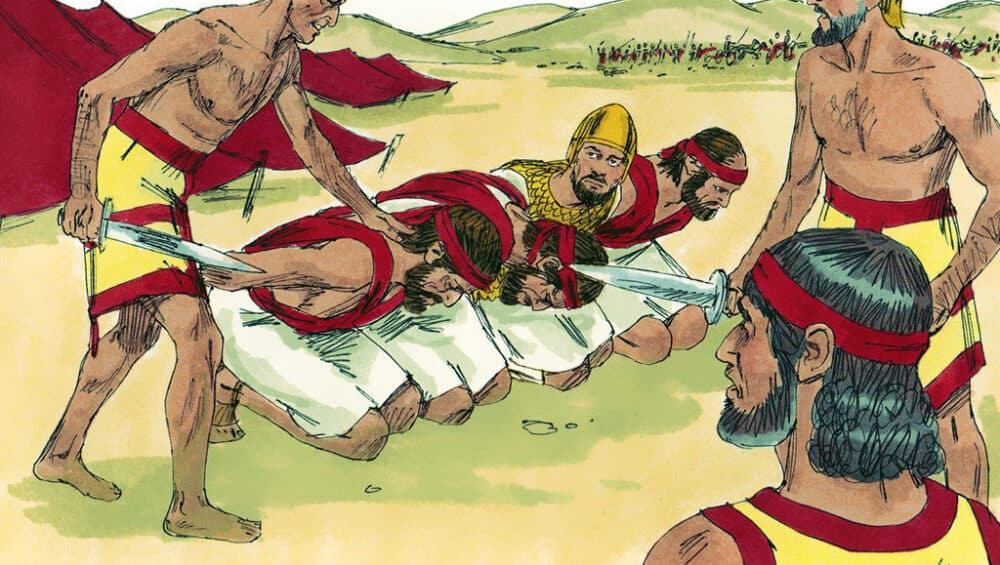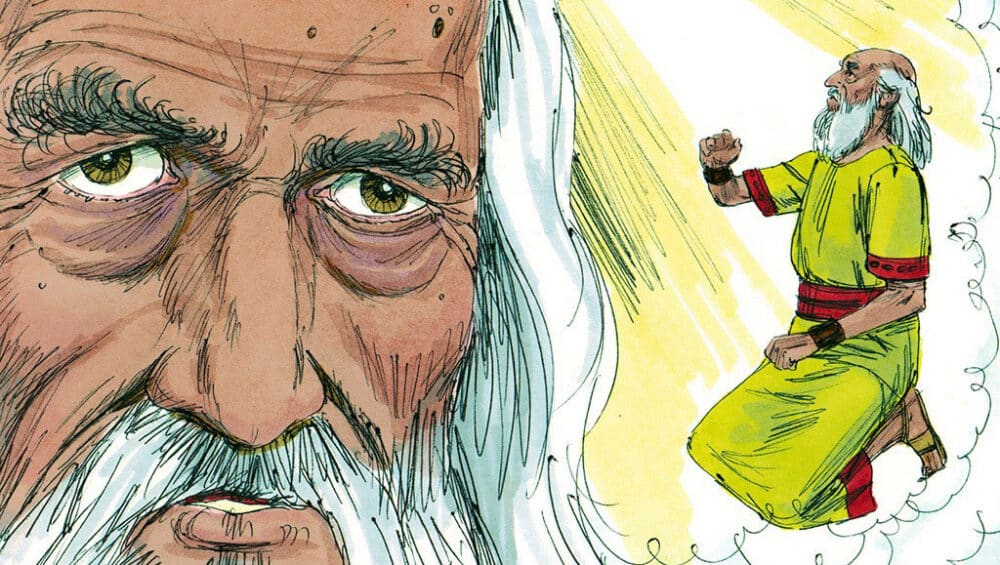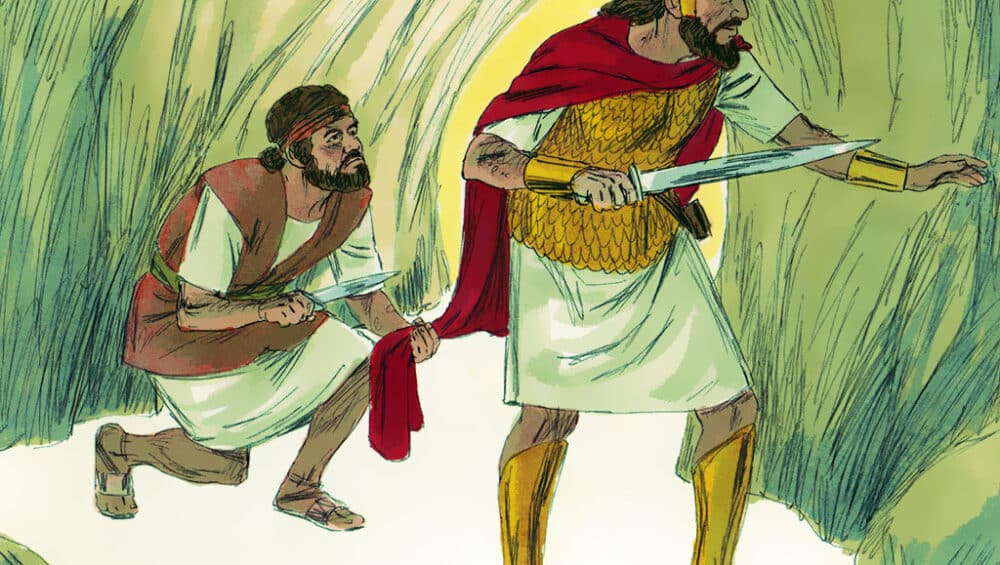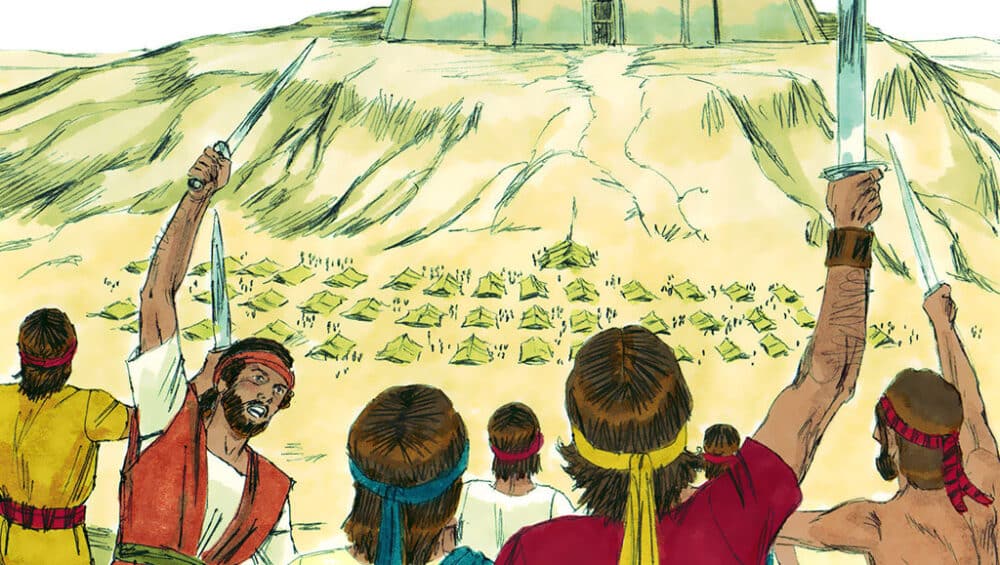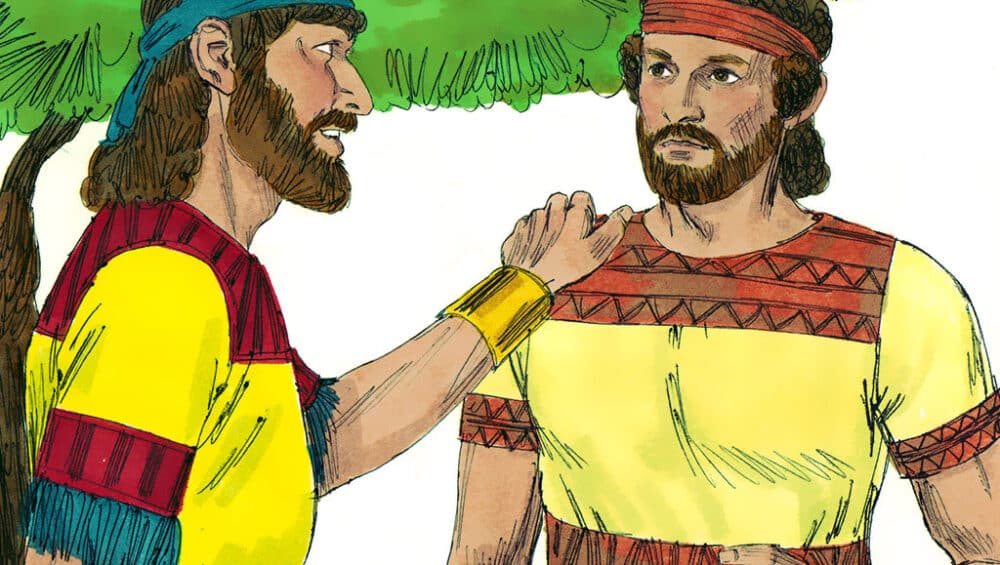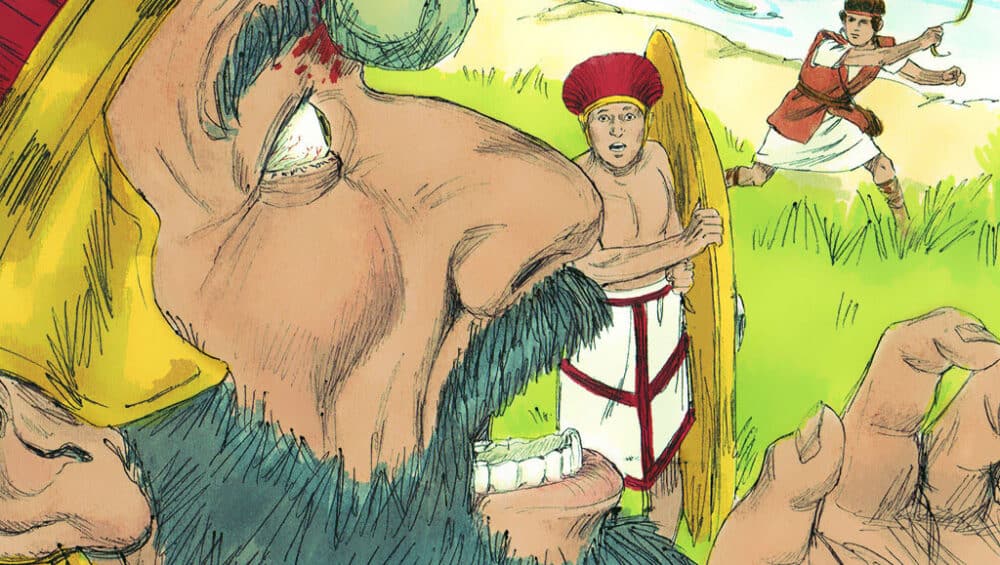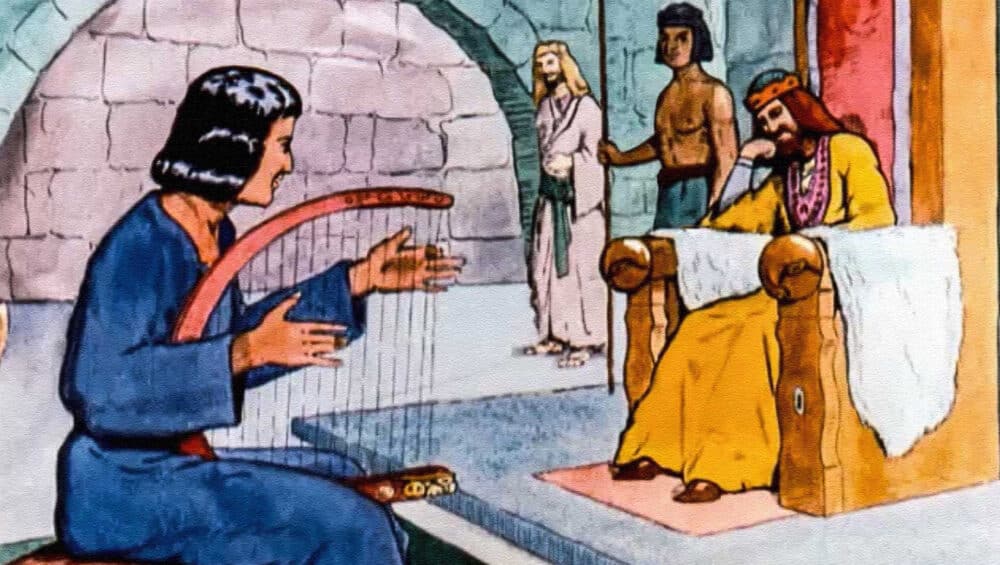Moody Publishers / FreeBibleimages.org
Welcome to Livin’ Light’s Bible-In-A-Year challenge of discovering God’s love for us and His purpose for our lives. Here is the format for this great adventure: The daily reading assignment is posted at 5 a.m. After each day’s reading, Leigh An Coplin, the blog host, shares observations and poses questions about difficult passages to Rob Fields, who studied Christian Education at Asbury Seminary and currently teaches Biology in the Orlando area. To start from the beginning, click on 365 Bible Readings and scroll down to Day 1. The reading schedule is taken from The One Year Chronological Bible NLT.
Today’s Reading
— 2 Samuel 22
— Psalm 18
(979-970 BC) Click here for a timeline of the entire Bible.
Questions & Observations
Q. (2 Samuel 22:1-51, Psalm 18): This is a beautiful song. I wondered why it isn’t solely in Psalms like the other songs. Also, it seems that God is on David’s mind 24/7. Is this how we are supposed to think and act, with God on our mind ALWAYS? When I first thought about this a while back, it seemed daunting. How could I think of God all the time? I didn’t see why it was necessary or how I could actually do it. I thought it was overkill. But, I must say, that I do do it a lot more of the time, dare I say most of the time. And, I’m normally a happier person. Even when I’m frustrated or angry, I talk to God to try to get me out of it because I know it’s not doing me or Him any good when I’m in a bad mood.
A. One of Jesus’ more famous commands was for us to love God, among other things, with all of our mind (Mark 12:30, among other places). To me, that means making God our daily focus, and doing our best to keep Him in mind, moment by moment. Actually, one of the ways that this is best accomplished — drumroll — by reading our Bible every day! (Pat yourself on the back!) That is, if we are constantly immersing ourselves in the Word of God, then the Spirit can use these words to bring our mind into focus on God. I’m glad to hear that you have seen your focus on God increase a bit, and I am certainly suspicious that part of the reason for this is the project that we are undertaking.
One of the hardest things to do in life is to focus on God, not just in moments of peace and silent reverence, but when life is frustrating or things don’t go our way. Can we focus on God when we are stuck in traffic, or behind that pokey person in the grocery store line? Can we trust in the truth of God’s word when someone is attacking us? Do we truly believe that it is better to trade love for hate? To put our trust in God and not our own finances or plans? The answer to these questions, quite honestly, is “no” for a lot of Christians. But the beauty of grace is that God is always at work on us, and over time, you just might find patience and peace in the midst of turmoil that you would have never thought possible in your past. That, I suspect, will be the moment when you have truly made God, and not the things of this world, your moment-by-moment focus.
Q. (22:21-25): David is saying he is blameless before God. This isn’t true though. He slept with Bathsheba, he forgot God in his battle plans at least once. So, why does he say he is blameless?
A. Beginning at chapter 21, my notes indicate that these chapters, including 22, are a collection or appendix of sorts to 2 Samuel, and they are not necessarily listed chronologically. Note the date of the poem: the verses tell us that David is praising God for His deliverance from his enemies and Saul. Now, Saul has been dead a long time at this point chronologically, so it is not a stretch to say that this section was composed at a much earlier, pre-Bathsheba, time in David’s life. If you want an alternative explanation, you could also argue that David made his repentance and sin offerings for his sins, so he could have seen himself as innocent in God’s eyes because he had taken the legal steps to purify himself of the stain of sin. I could see either one of these as good explanations.
Q. I always thought the entire Bible was dictated from God. But, the Psalms are praising God, not from God.
A. Nope. What you are describing is a caricature of the most commonly understood concept of Biblical inspiration. What the Bible tells us, in 2 Timothy 3:16 among other places, is that the words of Scripture are God-breathed. That is, God-inspired, but did not “dictate” if you will, the words that He desired to have been written down. And in this regard, this makes sense. If God “dictated” the words of the Bible — as He did in the Quran according to devout Muslims for example — then we would expect to hear only one “voice” in the text. But the Bible claims to be something very different from a “cosmic typewriter:” it claims to be the recordings of many people, men and women, who encountered the Living God and wrote down their experiences. Sometimes, they are writing down words for God directly (we will see this in the Prophets section coming up, and we already saw it in the Law section), but other times, we see it contains words that people like David and many others record describing their relationships with God. Frankly, Psalms is a great example of the free expression we see in Scripture: many of the words that it contains are borderline blasphemous, but they are the real words that people use to talk to God in the midst of their trials and anger or disappointment with Him. You will see no other book that captures this spirit of recording encounters with God better than the Psalms. Don’t think of the Bible as something God handed down to us, think of it as an inspired recording of more than 1500 years of encounters with this incredible Being as He moved amongst His chosen people to save the entire world.
Q. (Psalm 18:35): David made reference to God’s right hand here. Is that of any significance?
A. There’s a few meanings that would be relevant for us. First, a warrior would, most likely, carry a weapon such as a spear or sword with his right hand, so the image is symbolic of a person fighting for David’s cause. (Note: the weapon on the right hand comes after the image of the shield, most often worn on the left hand). Also, the image of God’s right hand will continue to evolve and become associated with the imagery of the Messiah. This comes from the double meaning of “right hand”: the first, as we mentioned, was weapons-bearing; but it also meant, secondly, a close advisor in a king’s court — the person seated at the right hand would have been the most important person next to the king. It would have been the person’s chosen advisor or warrior, which is exactly the image that we want in the concepts of Messiah, God’s chosen or anointed one.
For further reading: The right hand is mentioned over 160 times in the Bible, https://www.patheos.com/blogs/christiancrier/2015/06/13/what-does-the-right-hand-symbolize-or-mean-in-the-bible/
Shop: Christian shirts get noticed. Check out these conversation starters: https://livinlight.org/shop/
Tomorrow’s reading
— 2 Samuel 24:1-9
— 1 Chronicles 21:1-6
— 2 Samuel 24:10-17
— 1 Chronicles 21:7-17
— 2 Samuel 24:18-25
— 1 Chronicles 21:18-22:19

